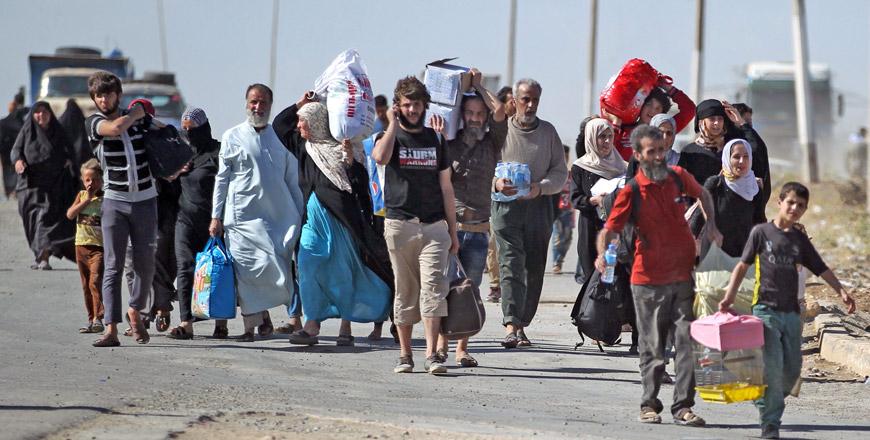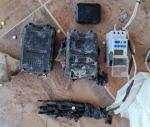You are here
Iraq’s domestic security must catch up to military gains — defence minister
By Reuters - Jul 22,2016 - Last updated at Jul 22,2016
BAGHDAD — Less than 10 per cent of Iraqi territory remains in the hands of the Daesh terror group, but battlefield advances have not been matched by better security inside Iraq, the country's defence minister said on Thursday.
Iraq is now mounting a campaign to retake Mosul, the de facto Daesh capital, after recapturing Fallujah late last month. But a suicide bombing in Baghdad less than a week after Fallujah fell killed almost 300 people, and bombings since then have taken at least 51 more lives.
"Progress in military performance must be paired with progress on the security file," Defence Minister Khalid Al Obeidi tweeted from Washington before a meeting of defence ministers from the US-led coalition battling the ultra-hardline militants.
At its peak, Daesh had captured somewhere between 30 and 40 per cent of Iraqi territory. The ground it holds has been drastically reduced, but the militants can still inflict tremendous damage in Iraq's towns and cities.
The suicide bombing in central Baghdad earlier this month, which killed at least 292 in one of the worst such attacks since the US-led invasion in 2003, was a "stark example" of that failure, he said. Daesh claimed responsibility for the attack.
Obeidi said the battle for Mosul, which has gained momentum since the recapture of Fallujah and a northern air base, required air strikes, intelligence, logistics and engineering support.
He said he expects most residents, which he estimated at around 2 million, to flee Mosul as they have done in recent battles, and that the offensive would require coordination with peshmerga forces from the autonomous Kurdish region.
That population estimate is nearly double recent projections from the United Nations, which predicts displacement from Mosul will require the largest humanitarian relief operation in the world this year.
Obeidi acknowledged the need for political understandings about the offensive and post-Daesh management, but it is far from certain that Iraq can accomplish that before the battle begins.
Although Iraqi and US officials have not announced a timetable for moving on the city, a senior Baghdad-based diplomat and a Western official have said Iraqi Prime Minister Haider Al Abadi wants to push into Mosul by October.
Western officials say retaking the city without a plan to restore security, basic services and governance, along with money and personnel to implement it, risks repeating the mistake US President George Bush’s administration made in 2003, by toppling one government without plans for a new one.
Mosul and its outskirts are a mosaic of different ethnic and religious groups lying between Turkey, Syria and Iraqi Kurdistan, and the fight against Daesh has exacerbated tensions among many of those communities.
Obeidi said Iraq needed the help of its allies in securing cities and borders, but that the participation of the Popular Mobilisation Forces (PMF), a coalition of mostly Iran-backed Shiite militias, would be determined by “military plans and a decision by the commander-in-chief”.
Some PMF elements have been accused of rights violations in earlier battles, including Fallujah. Obeidi condemned such abuses on Twitter as “a betrayal of the army’s sacrifices” and said violators would be held accountable.
Related Articles
Iraq's defence minister criticised the United States on Sunday for declaring a time frame for an offensive to recapture Daesh militants’ northern stronghold of Mosul, saying military commanders should not show their hand to the enemy.
Iraq's Sunni province of Anbar is key to launching the long-awaited operation to retake the city of Mosul from Daesh terror group, the country's defence minister said Wednesday.
BAGHDAD — Suicide bombings at checkpoints in Baghdad and southern Iraq claimed by the Daesh terror group killed at least 35 people and

















